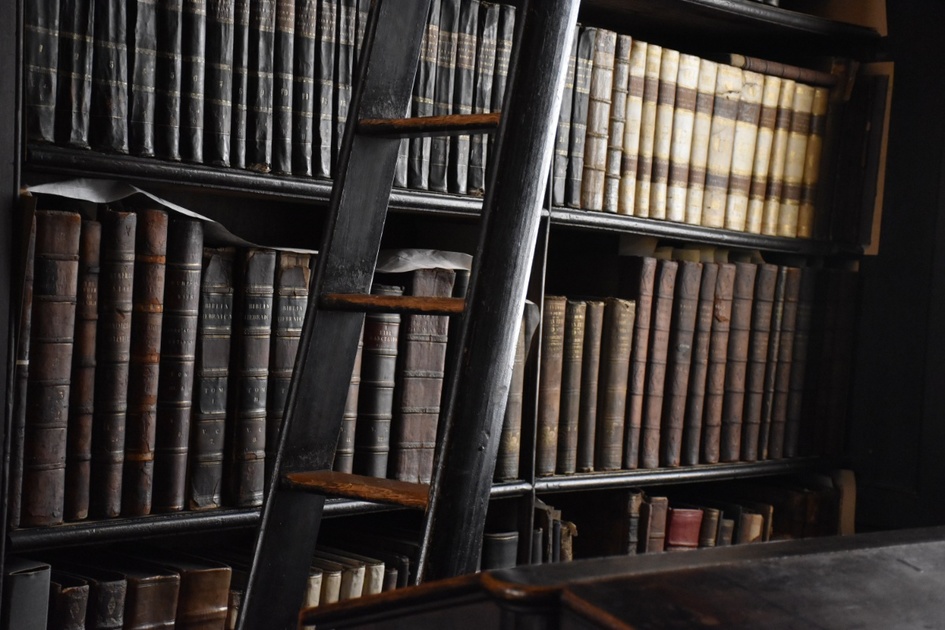
ūĢų╝ūæų░ū×ųĘūÉūÖ ū¦ųĖū×ų┤ūÖūżų╝ųĘū£ų░ūÆų┤ūÖ — ūæų╝ų░ūöųĘūÉūÖ ū¦ų░ū©ųĖūÉ: ū┤ū¬ų╝ųĘūĀų╝ūĢų╝ū© ūĢų░ūøų┤ūÖū©ųĘūÖų┤ūØ ūÖūĢų╝ū¬ų╝ųĖūź ūśų░ū×ųĄūÉų┤ūÖūØ ūöųĄūØ ūĢų╝ūśų░ū×ųĄūÉų┤ūÖūØ ūÖų┤ūöų░ūÖūĢų╝ ū£ųĖūøųČūØū┤, ū©ųĘūæų╝ų┤ūÖ ūÖų░ūöūĢų╝ūōųĖūö ūĪųĖūæųĘū©: ū×ų░ūŚūĢų╝ūĪų╝ųĖū© ūĀų░ū¬ų┤ūÖū”ųĖūö — ūśųĖū×ųĄūÉ, ū®ūüųČūÉųĄūÖū¤ ū×ų░ūŚūĢų╝ūĪų╝ųĖū© ūĀų░ū¬ų┤ūÖū”ųĖūö — ūśųĖūöūĢų╣ū©. ūĢų░ū©ųĘūæų╝ųĖūĀųĘū¤ ūĪųĖūæų░ū©ų┤ūÖ: ū┤ūśų░ū×ųĄūÉų┤ūÖūØ ūÖų┤ūöų░ūÖūĢų╝ ū£ųĖūøųČūØū┤ — ū×ų┤ūøų╝ūćū£ ū×ųĖū¦ūĢų╣ūØ.
for Video Shiur click here to listen: Psychology of the DAF Shabbos 125
And with regard to what do they disagree? It is with regard to this verse: “And everything upon which any part of their carcass falls shall be impure; whether oven, or stove, it shall be broken in pieces; they are impure, and they shall be impure to you” (Leviticus 11:35). Rabbi Yehuda holds: An oven that lacks smashing, i.e., it is whole and can be broken, can become impure. One that does not lack smashing, but it is situated in a place where it is not completely effective, is considered broken and is pure, i.e., it cannot become ritually impure. And the Rabbis hold that the verse comes to add: “They shall be impure to you,” in any case, under any circumstances.
ūĢūÖū¦ū©ūÉ ūÖūÉ:ū£ūÆ, ū£ūö
ūĢų░ūøųĖū£ųŠūøų╝ų░ū£ų┤ūÖųŠūŚųČųöū©ųČū®ūé ūÉų▓ū®ūüųČū©ųŠūÖų┤ūżų╝ų╣ųźū£ ū×ųĄūöųČų¢ūØ ūÉųČū£ųŠū¬ų╝ūĢų╣ūøųæūĢų╣ ūøų╝ų╣ųŻū£ ūÉų▓ū®ūüųČų¦ū© ūæų╝ų░ū¬ūĢų╣ūøųøūĢų╣ ūÖų┤ūśų░ū×ųĖų¢ūÉ ūĢų░ūÉų╣ū¬ųźūĢų╣ ū¬ų┤ū®ūüų░ūæų╝ų╣ųĮū©ūĢų╝ūā
And if any of those falls into an earthen vessel, everything inside it shall be unclean and [the vessel] itself you shall break.
ūĢų░ųĀūøų╣ū£ ūÉų▓ū®ūüųČū©ųŠūÖų┤ūżų╝ų╣ų©ū£ ū×ų┤ūĀų╝ų┤ūæų░ū£ųĖū¬ųĖųźūØ ūĆ ūóųĖū£ųĖūÖūĢų« ūÖų┤ūśų░ū×ųĖūÉųÆ ū¬ų╝ųĘūĀų╝ų¦ūĢų╝ū© ūĢų░ūøų┤ūÖū©ųĘųøūÖų┤ūØ ūÖų╗ū¬ų╝ųĖų¢ūź ūśų░ū×ųĄūÉų┤ųŻūÖūØ ūöųĄųæūØ ūĢų╝ūśų░ū×ųĄūÉų┤ų¢ūÖūØ ūÖų┤ūöų░ūÖųźūĢų╝ ū£ųĖūøųČųĮūØūā
Everything on which the carcass of any of them falls shall be unclean: an oven or stove shall be smashed. They are unclean and unclean they shall remain for you.
Malbim and Ramban on Vayikra 11:35 Note that yutatz is different than shever. Shever is to break a vessel or impair it’s function. Yutatz is to destroy a structure. ūøū£ūÖ ūŚū©ūĪ ūÖū®ūæū©
ū®ūóū©ūÖ ū¬ū®ūĢūæūö ūōū©ūæūÖūĀūĢ ūÖūĢūĀūö ū®ūóū© ūÉ, ūóūÖū¦ū© ū©ūæūÖūóūÖ
ūöūóūÖū¦ū© ūöū©ūæūÖūóūÖ ūöū”ūóū© ūæū×ūóū®ūö ūøū×ūĢ ū®ūĀūÉū×ū© (ūÖūĢūÉū£ ūæ') ūĢūÆūØ ūóū¬ūö ūĀūÉūĢūØ ūö' ū®ūĢūæūĢ ūóūōūÖ ūæūøū£ ū£ūæūæūøūØ ūĢūæū”ūĢūØ ūĢūæūæūøūÖ ūĢūæū×ūĪūżūō. ūĢūÉū×ū©ūĢ ū¢"ū£ ūöū£ūæ ūĢūöūóūÖūĀūÖūØ ū®ūĀūÖ ūĪū©ūĪūĢū©ūÖ ūöūŚūśūÉ. ūĢūøū¤ ūøū¬ūĢūæ (ūæū×ūōūæū© ūś"ūĢ) ūĢū£ūÉ ū¬ū¬ūĢū©ūĢ ūÉūŚū©ūÖ ū£ūæūæūøūØ ūĢūÉūŚū©ūÖ ūóūÖūĀūÖūøūØ. ū£ūøū¤ ūæū¢ūÉū¬ ūÖūøūĢūżū© ūóūĢū¤ ūöūĪū©ūĪūĢū©ūÖūØ. ūæū×ūōū¬ ū¬ū®ūĢūæū¬ūØ. ūøūĀūÆūō ū×ūōū¬ ū×ū®ūĢūæū¬ūØ. ūøūÖ ūÖū¬ūøūżū© ūóūĢū¤ ū£ūæūæ ūöūŚūśūÉūÖūØ. ūæū×ū©ūÖū©ūĢū¬ūØ ūĢūÉūĀūŚūĢū¬ūØ. ūæū®ūæū© ūÉū®ū© ūöūØ ū®ūĢūæū©ūÖūØ ūÉūĢū¬ūĢ. ūøū×ū®"ūø ūøūÖ ū©ūĢūŚ ū×ū£ūżūĀūÖ ūÖūóūśūĢūŻ. ūĢūĀūÉū×ū© (ū¬ūöū£ūÖūØ ūĀ"ūÉ) ū£ūæ ūĀū®ūæū© ūĢūĀūōūøūö ūÉū£ūöūÖūØ ū£ūÉ ū¬ūæū¢ūö. ūĢū×ū®ū£ ūóū£ ū¢ūö ū×ū¤ ūöūøū£ūÖūØ [ūöūśū×ūÉūÖūØ] ūÉū®ū© [ūĀū®ūæū©ūĢ]. ū×ūśūĢū×ūÉū¬ūØ ūśūöū©ūĢ. ūøū×"ū® (ūĢūÖū¦ū©ūÉ ūÖ"ūÉ) ū¬ūĀūĢū© ūĢūøūÖū©ūÖūØ ūÖūĢū¬ūź. ūĢūóūĢū¤ ūöūóūÖūĀūÖūØ ūÖūøūżū© ūæūōū×ūóūĢū¬ ūøū×ūĢ ū®ūĀūÉū×ū© (ū¬ūöūÖū£ūÖūØ ū¦ūÖ"ūś) ūżū£ūÆūÖ ū×ūÖūØ ūÖū©ūōūĢ ūóūÖūĀūÖ ūóū£ ū£ūÉ ū®ū×ū©ūĢ ū¬ūĢū©ū¬ūÜ. ū£ūÉ ūÉū×ū© ūóū£ ū£ūÉ ū®ū×ū©ū¬ūÖ ū¬ūĢū©ū¬ūÜ, ūÉūæū£ ūÉū×ū© ū£ūÉ ū®ū×ū©ūĢ. ūøūÖ ūöūØ ūĪūæūæūĢ ūöūŚūśūÉ ūóū£ ūøū¤ ūöūĢū©ūōū¬ūÖ ūżū£ūÆūÖ ū×ūÖūØ:
The fourth principle is pain in [his] actions, as it is stated (Joel 2:12), "'Yet even now' - says the Lord - 'Turn back to Me with all your hearts, and with fasting, weeping, and lamenting." And they, may their memory be blessed, said (Yerushalmi Berakhot 1:4), "The heart and the eyes are the two intermediaries of sin." And so is it written (Numbers 15:39), "and you shall not go astray after your hearts and after your eyes." Hence with this will the sin of the intermediaries be atoned - with the measure of repentance according to the measure of the affliction. For the iniquity of the heart is atoned by its bitterness and sighing - with the brokenness with which it is broken, as it is stated (Isaiah 57:16), "when spirits in front of Me cover themselves." And it is [also] written (Psalms 51:19), "God, You will not despise a contrite and crushed heart." And the parable about this is from the [impure] vessels - when they are broken, they are purified, as it is stated (Leviticus 11:35), "an oven or stove shall be smashed." And the iniquity of the eyes is atoned by tears, as it is stated (Psalms 119:136), "My eyes shed streams of water, because they do not obey Your Torah ." It does not state, "because I do not obey Your Torah," but rather states, "they do not obey"; since they were what caused the sin - therefore, I shed streams of waters.
Why did Rabbenu Yonah use yutatz of oven for his mashal instead of shevira of a kli cheres?
Hinting at destroying the constructed rationalizations. “Hitting bottom”.
I Samuel 1:8-10
ūĢųĘūÖų╝ų╣ų©ūÉū×ųČū© ū£ųĖų£ūöų╝ ūÉųČū£ų░ū¦ųĖūĀųĖųŻūö ūÉų┤ūÖū®ūüųĖųŚūöų╝ ūŚųĘūĀų╝ųĖūöųÖ ū£ųĖųŻū×ųČūö ū¬ų┤ūæų░ūøų╝ų┤ųŚūÖ ūĢų░ū£ųĖųÖū×ųČūöųÖ ū£ų╣ųŻūÉ ū¬ų╣ųĮūÉūøų░ū£ų┤ųöūÖ ūĢų░ū£ųĖų¢ū×ųČūö ūÖųĄū©ųĘųŻūó ū£ų░ūæųĖūæųĄųæūÜų░ ūöų▓ū£ųżūĢų╣ūÉ ūÉųĖųĮūĀų╣ūøų┤ūÖųÖ ūśųŻūĢų╣ūæ ū£ųĖųöūÜų░ ū×ųĄūóų▓ū®ūéųĖū©ųĖų¢ūö ūæų╝ųĖūĀų┤ųĮūÖūØūā
Her husband Elkanah said to her, “Hannah, why are you crying and why aren’t you eating? Why are you so sad? Am I not more devoted to you than ten sons?”
ūĢųĘū¬ų╝ųĖųŻū¦ųĖūØ ūŚųĘūĀų╝ųĖųöūö ūÉųĘūŚų▓ū©ųĄųøūÖ ūÉųĖūøų░ū£ųĖųźūö ūæų░ū®ūüų┤ū£ų╣ų¢ūö ūĢų░ūÉųĘūŚų▓ū©ųĄųŻūÖ ū®ūüųĖū¬ų╣ųæūö ūĢų░ūóųĄū£ų┤ųŻūÖ ūöųĘūøų╝ų╣ūöųĄųŚū¤ ūÖų╣ū®ūüųĄūæųÖ ūóųĘū£ųŠūöųĘūøų╝ų┤ūĪų╝ųĄųöūÉ ūóųĘū£ųŠū×ų░ū¢ūĢų╝ū¢ųĘų¢ū¬ ūöųĄūÖūøųĘųźū£ ūÖų░ūöūĢųĖųĮūöūā
After they had eaten and drunk at Shiloh, Hannah rose.—The priest Eli was sitting on the seat near the doorpost of the temple of the LORD.—
ūĢų░ūöų┤ų¢ūÖūÉ ū×ųĖųŻū©ųĘū¬ ūĀųĖųæūżųČū®ūü ūĢųĘū¬ų╝ų┤ū¬ų░ūżų╝ųĘū£ų╝ųĄųźū£ ūóųĘū£ųŠūÖų░ūöūĢųĖų¢ūö ūĢų╝ūæųĖūøų╣ųźūö ū¬ų┤ūæų░ūøų╝ųČųĮūöūā
In her wretchedness, she prayed to the LORD, weeping all the while.
ū©ūæ ūĪūĢū£ūĢūæūÖūÖū”ūÖū¦ ūöū£ūÉ ūÉū¬ ūśūĢūæūö ū×ūóū®ū©ūö ūæūĀūÖūØ? After She saw Elkana gave up, and all her rationalizations where deconstructed, then she truly began to pray.
for Video Shiur click here to listen: Psychology of the DAF Shabbos 125
Photo by Matteo Maretto on Unsplash
Translations Courtesy of Sefaria, except when, sometimes, I disagree with the translation ![]()
If you liked this, you might enjoy my Relationship Communications Guide. Click on the link above.
Rabbi Simcha Feuerman, Rabbi Simcha Feuerman, LCSW-R, DHL is a psychotherapist who works with high conflict couples and families. He can be reached via email at simchafeuerman@gmail.com
 Previous
Previous

